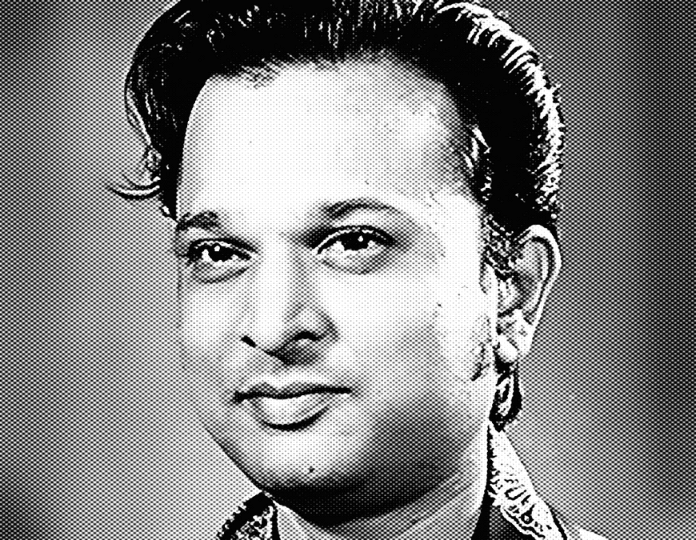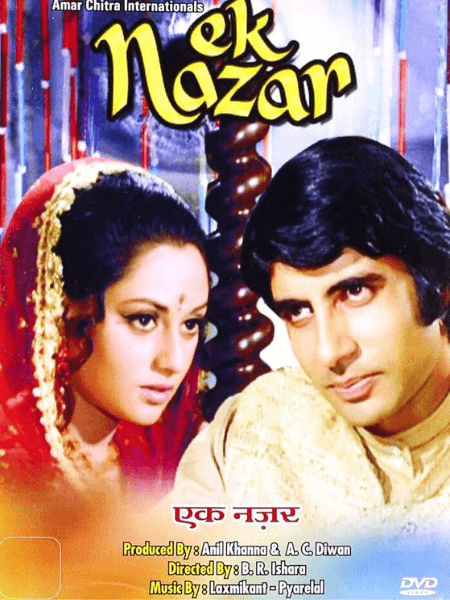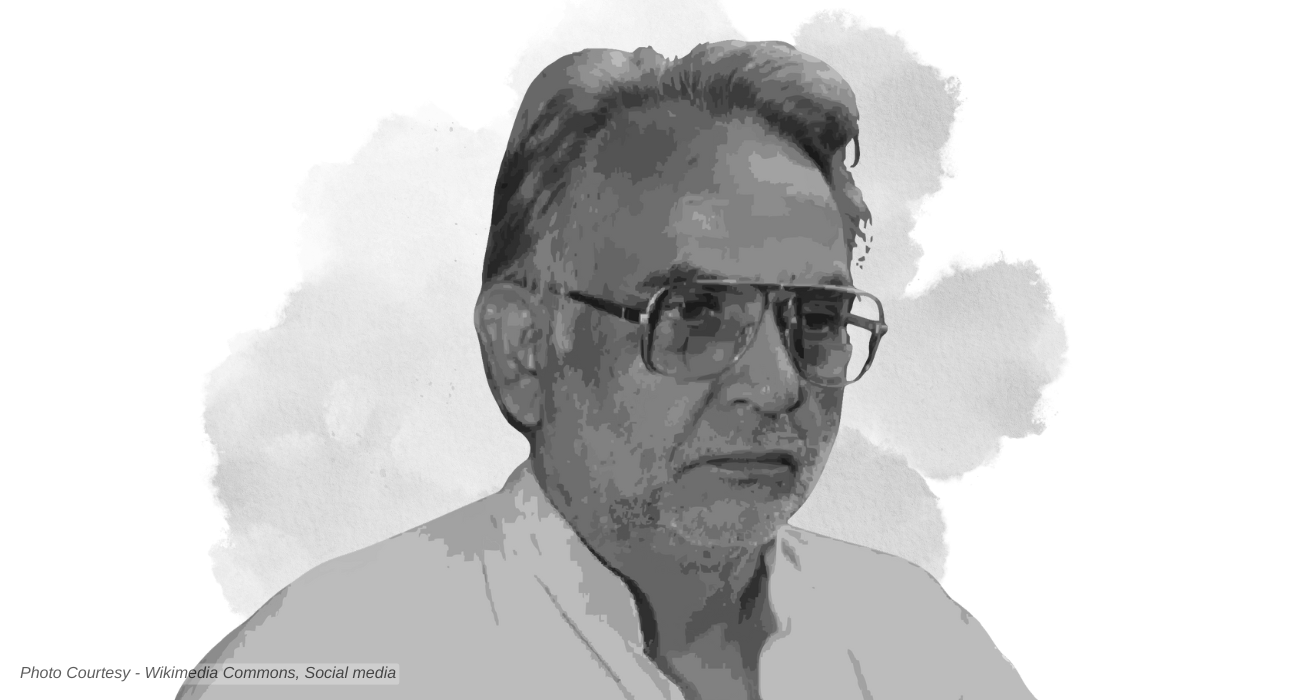B. R. Ishara was the trailblazer of Indian cinema who is known for his films tackling the issues that are otherwise absent in mainstream cinema. Ishara touched upon subjects like women’s sexuality, adultery, or other social taboos, which are present in society but never discussed. Some of his famous films include “Chetana,” “Ek Nazar,” “Zaroorat,” “Milap,” and many more.
Early Life and Career
B. R. Ishara was born as Roshan Lal Sharma on September 7, 1934, in Bharwain, Chintpurni, Una, Himachal Pradesh. His nickname was Babu, which he later adopted for his creative endeavors. Ishara was always fascinated by the film industry and wanted to make a career there. To achieve his dream, Ishara ran away from his home to seek his fortune in the Bombay film industry.
In Bombay, he started his journey as a spot boy. He then met the famous lyricist, Qamar Jalalabadi, who made him his assistant and even gave him a place to stay. While with Jalalbadi, he started writing and adopted the pseudonym Ishara, thus becoming Babu Ram Ishara.
In this period he assisted many writers and directors, most notably Basu Bhattacharya in Teesri Kasam (1966). Ishara made his directorial debut with the small film Awara Badal (1964), starring Ajit, Helen, Iftekhar, and Leela Mishra. He then wrote the dialogues of films like “Chand Aur Suraj (1965),” “Spy in Rome (1968),” and “Dharti Kahe Pukar Ke (1969).”
Breakthrough of B. R. Ishara

B. R. Ishara then directed Insaaf Ka Mandir in 1969, which starred Tarun Bose and Aruna Irani.
In 1970 came one of Ishara’s most memorable films, Chetna, which became a landmark in Indian cinema for its portrayal of a sex worker’s life. It stars Shatrughan Sinha, Anil Dhawan, Rehana Sultan, and Nadira. The film was ahead of its time, dealing with themes of sexual freedom and the hypocrisy of society. It earned an ‘Adult’ certification, which was a rarity and a subject of taboo during that era. The film’s adult certificate and its morning show screenings attracted a horde of young audiences.
The film’s protagonist, played by Rehana Sultan, defied conventional expectations. She openly drank, smoked, and spoke her mind, which was not appropriate for a woman, according to society. The audience was taken aback by such a scandalous portrayal. But the film also gets praise for its brave attempt at something new and has since become a cult classic.
He directed “Zaroorat,” starring Vijay Arora, Reena Roy, and Danny Denzongpa in 1972. The film was so bold in content that it remained with the censors for a long time, eventually releasing in a tamed version.




A Daring Filmmaker
“Charitra,” a film directed by B. R. Ishara in 1973, featured Parveen Babi in her debut role, alongside cricketer Salim Durrani. “Charitra” revolves around a young woman from a lower-middle-class family, played by Parveen Babi, who finds herself in a dire situation when her father mortgages their house to a wealthy industrialist. In a desperate attempt to save her family from destitution, she makes a decision that leads her down a path of moral conflict and self-discovery.
“Charitra” was bold for its time, touching upon themes of exploitation, societal pressure, and the quest for dignity. The film’s portrayal of a woman’s struggle against the judgmental gaze of society was a reflection of Ishara’s commitment to bringing uncomfortable truths to the forefront of cinematic discourse.
Despite its controversial nature, the film was well-received by the public. His other notable works from this era include “Ek Nazar (1972)” with Amitabh Bacchan and Jaya Bhaduri, “Milap (1972)” with Shatrughan Sinha, Reena Roy, and Danny Denzongpa, “Prem Shastra (1974)” with Dev Anand, Zeenat Aman, and Bindu, “Rahu Ketu (1978)” with Shashi Kapoor and Rekha, and “Log Kya Kahenge (1982)” with Shabana Azmi, Shatrughan Sinha, and Sanjeev Kumar.
One of the most recurring themes in Ishara’s films was the exploration of sexual hypocrisy and the moral duplicity of the middle class. His films questioned the societal norms and the facade of respectability that often hid uncomfortable truths.
Other Work
Ishara’s narratives also touched upon complex human emotions and relationships. Films like ‘Dil Ki Rahen‘ presented interfaith love stories, subtly commenting on religious tolerance and unity. “Charitra” highlighted the dichotomy of a man’s life, showing the stark contrast between his public persona and private actions.
Despite the sensor troubles and criticism of his subject choices, Ishara continued to explore human relationships and societal issues with films such as “Gunah Aur Kanoon (1970),” “Man Tera Tan Mera (1971),” “Man Jaiye (1972),” “Nai Duniya Naye Log (1973),” “Haathi Ke Daant (1973),” “Dil Ki Rahen (1973),” “Dawat (1973),” “Bazaar Band Karo (1973),” “Kaagaz Ki Nao (1975),” “Ghar Ki Laaj (1979),” “Khara Khota (1981),” “Hum Do Hamare Do (1984),” “Sautela Pati (1985),” “Aurat (1986),” “Besahara (1987),” “Woh Phir Aayegi (1987),” “Sila (1988),” “Janam Se Pehle (1994),” “Sautela Bhai (1996),” and “Hukumnama (1996).”
B. R. Ishara was not just a filmmaker; he was a mentor who had an eye for talent. He introduced and nurtured several newcomers who would go on to become stalwarts of Indian cinema. Notable among these were Parveen Babi, Bappi Lahiri, Danny Dengzongpa, Rakesh Pandey, Vijay Arora, Jaya Bhaduri, Amitabh Bachchan, Reena Roy, Shatrughan Sinha, Raj Kiran, and Raza Murad.
Personal Life
In 1984, Ishara married national award-winning actress Rehana Sultan, the leading star of “Chetana.” His personal life, much like his professional one, was characterised by the bold choices he made. B. R. Ishara passed away on July 25, 2012, in Mumbai, leaving behind a legacy of films that continue to inspire filmmakers and audiences alike.
B. R. Ishara’s filmography is a testament to his versatility and his willingness to push the boundaries of conventional Indian cinema. His works remain a significant part of Bollywood’s rich history, reflecting a time when the industry was evolving rapidly and embracing new ideas.

B. R. Ishara on IMDB














Leave feedback about this